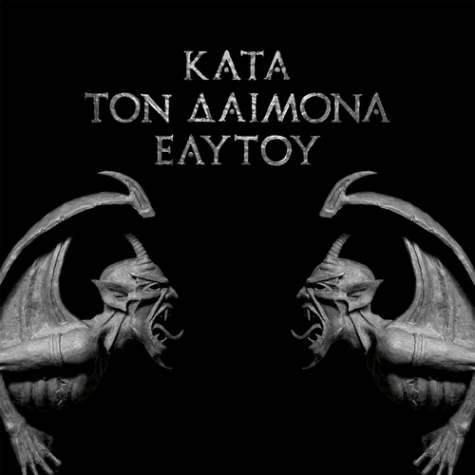By Natalie Zed
Founded in 1987, Rotting Christ are one of the foundational black metal bands hailing from the Greece. Emerging from a deeply religious, orthodox community, Rotting Christ were a rare dissenting voice at the time of their formation. Their career has been marked by controversy at times: during their first tour, several audience mutilated themselves and some were hospitalized; their name has been criticised by everyone from Republican conservative Gary Bauer (who perceptively called them “anti-Catholic”), to Dave Mustaine, who refused to play a concert in Greece if Rotting Christ were on the bill; and their appearance in the constitutionally Roman Catholic country of Malta was attacked by various Christian groups. Despite all of this, Rotting Christ have become a respected band in the metal underground, and have become one of the longest-standing bands in black metal.
Rotting Christ have always been a band that evolved naturally over the 25 years their career has spanned, starting in grindcore, adopting black metal as a base, and slowly accreting influences from there. Their most recent album, Kata Ton Daimona Eaytoy, is the most outwardly Greek album they have every produced. This time they have chosen to turn inward, drawing upon their own cultural heritage for inspiration. The result is a record rooted in a Byzantine aesthetic, deeply ritualistic resonant but also more alienating that their recent efforts.
Each of the songs on Kata Ton Daimona Eaytoy is rooted with a core note, chord or progression, and the song then evolves out of the exploration if this central element. This creates a deeply weighted, almost ceremonial feel, but also results in some repetitiveness that can drag in places. Ritualistic chanting and ominous keys are frequently employed to thicken the atmosphere, clouding it with a combination of incense and blood. The chants vary from downcast drone to hysterical wail, and “Cine Iubeste Si Lasa” even features some operatic female vocals. The vocal palate is so broad, in fact, that when Sakis Tolis is heard it is almost a welcome change.
There are moments at which the ritual orthodoxy and classic sound of Greek culture meshes extremely well with the blackened, metallic elements on Kata Ton Daimona Eaytoy, and there are also moments when the drive and power that has always defined Rotting Christ is lost. This feels very much like a concept album or an experiment, which is certainly not a criticism. Fans of their previous work may be surprised by this direction, but for its flaws Kata Ton Daimona Eaytoy is not an unwelcome edition to Rotting Christ’s discography. In fact, it in fascinating to see them incorporate elements of the religious structures and culture that they have built a career out of rebelling against.
